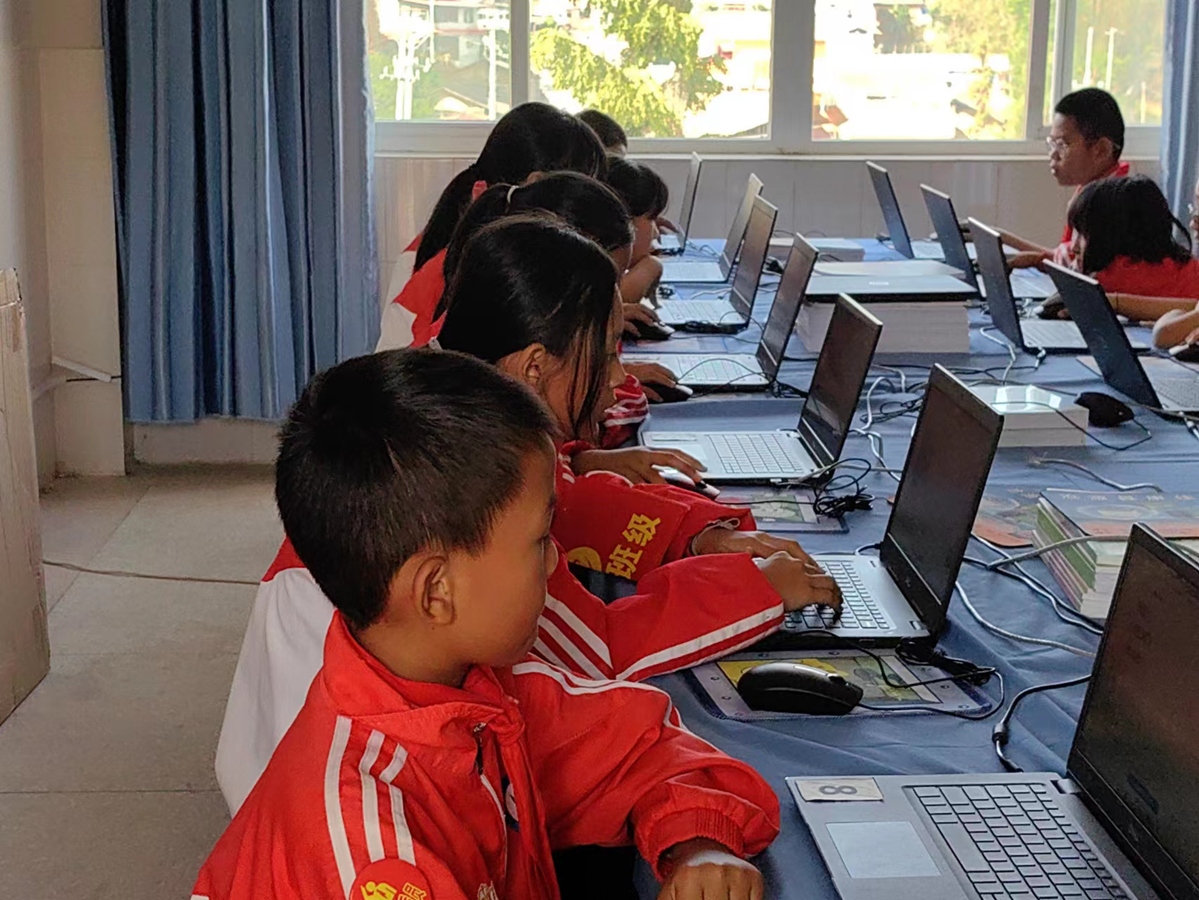Language teacher instills IT know-how in Yunnan kids
China Daily | Updated: 2023-07-11 09:08

KUNMING — Tucked away in China's southwestern border, Cangyuan Wa autonomous county in Yunnan province has long faced the challenges of economic underdevelopment and a weak educational foundation, partly due to its remote mountainous landscape.
However, it is in this seemingly unlikely setting that some extraordinary young programming talent has started to emerge.
Last year, 43 students from the county made it to the finals of a major national information technology competition, with six of them securing awards in the creative programming category.
Some of these bright sparks emerged under the guidance of Chen Yuanchun, a 44-year-old Chinese language teacher at the central primary school of the county's Mengdong township. In addition to her language classes, she also runs the school's computer programming club.
"The children often jokingly say that their programming lessons are taught by a language teacher," she said.
Chen has had a keen interest in computers since childhood. She considered attending a computer school after graduation, but due to family circumstances, she chose to study education and become a teacher. However, her enthusiasm for computer technology has persisted over time.
In 2018, as part of an assistance program for Cangyuan, the Ministry of Education provided local schools with the resources for programming classes.
Chen saw an opportunity. She took the initiative to become one of the first teachers in the county to receive training in youth programming education.
"I read in a report that the illiterate people of the future might not be only those who can't read, but also those who don't understand programming," she said.
After the training, Chen established a programming club at her school, but she encountered more obstacles than she had expected. Promoting programming in Cangyuan, which trails in terms of informatization compared to big cities, was no easy task. The school's lack of hardware facilities and the students' inadequate IT literacy posed significant challenges.
Many parents were also worried that learning programming might waste students' time and affect their academic performance.
Undeterred by the situation, she started teaching students in her own class during self-study hours. The children, initially apprehensive, gradually gained confidence as they transitioned from simple instructions to complex tasks, including creating animations and games inspired by Chinese idioms and ancient poems. "At the start, some children were even afraid to click the mouse, fearing they would break the computer," Chen recalled. "But now, they are all proficient."
Over the course of a semester, each student managed to produce at least one piece of programming.
Chen's venture has reaped unexpected dividends. The children began to display improved problem-solving skills and enhanced focus in other subjects. Teachers and parents alike were astounded by the transformation.
Among the most notable success stories is that of Lu Tianhao. Once a reclusive child struggling with his academics, Lu has blossomed into an engaged and motivated student since starting his programming education. His self-designed interactive poetry game has even garnered accolades.
"There has been a spark in his eyes since he started programming," Chen said, adding that he also gained confidence and made academic progress in other areas.
These days, the classes are popular, and more local parents are asking to enroll their children in Chen's club as IT is gaining popularity in other schools.
Since 2019, Cangyuan has set up programming courses in over 20 elementary and middle schools across the county. Youth programming education has been promoted widely in this border county, covering more than 5,000 primary and middle school students each year on average.
"The children in the mountainous areas are no less capable than others. They just lack opportunities due to limited conditions. We hope to foster their desire for exploration and knowledge by introducing them to programming," Chen said. "But more importantly, we hope to plant a seed in their hearts, so they can use programming as a key to open the door to a broader world and explore a greater range of possibilities."
Xinhua
























